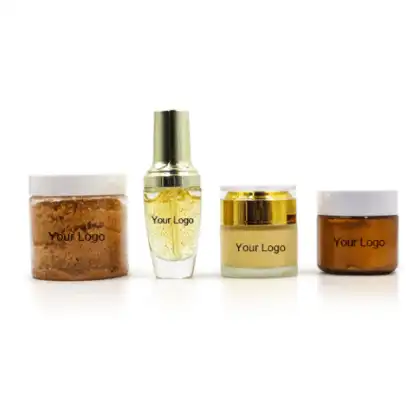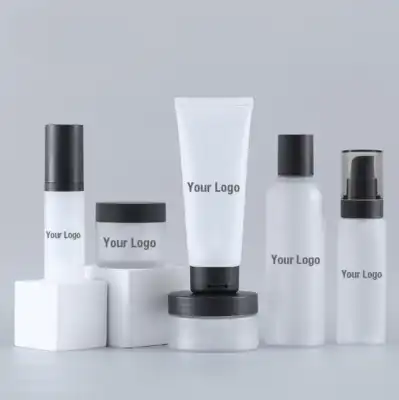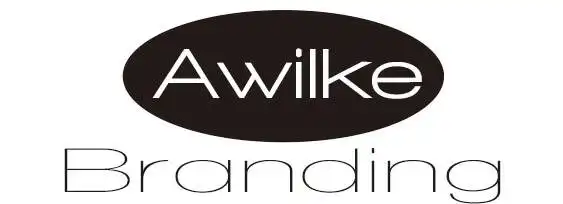
Ever wondered how to turn your passion for skincare into a thriving business? Whether you’re a budding entrepreneur with no prior experience, a spa or salon owner looking to create your private label products, or an influencer or hairstylist eager to dive into the business world – building a skincare brand from scratch can be a daunting yet rewarding journey. How do you navigate the complexities of the skincare industry and carve a niche for your brand? Let’s unravel the answers and explore five effective ways to kickstart and elevate your skincare brand, tailored for each unique entrepreneurial path.
STEP 1. Understand the Skincare Market
Building a successful skincare brand from scratch necessitates a deep understanding of the market environment. This foundational step involves a multifaceted approach to ensure a nuanced grasp of industry dynamics, consumer behavior, and emerging trends.
Market Research
Market research serves as the bedrock upon which a successful skincare brand is built. Begin by conducting a thorough analysis of the skincare market, encompassing its size, key players, and prevalent trends. This is done by conducting a deep dive into reports and studies about the skincare business. Look at how big the market is, who your main competitors are, and what your potential customers are into these days. This helps you figure out where your skincare brand fits and what people want.
Consumer Insights and Preferences
Delve deeper into consumer behavior and preferences to unearth valuable insights. Understanding the specific needs, concerns, and motivations of your target audience empowers you to tailor your skincare products effectively. This consumer-centric approach enhances your brand’s appeal and competitive positioning.
Learn from Your Competitors
A strategic examination of competitors is imperative for navigating the intricacies of the market. Identify successful skincare brands and dissect their strategies. What sets them apart? Where are the opportunities for differentiation? By learning from industry counterparts, you can glean insights that inform your brand’s unique value proposition.
STEP 2. Give in to Skin Care Trends
To build a successful skincare brand, it’s crucial to stay abreast of the latest trends in the industry. Trends not only guide product development but also influence consumer preferences. Incorporating popular skincare ingredients and techniques into your products can give your brand a competitive edge.
Here’s a practical guide to help you align your skincare brand with the latest trends, ensuring you’re always in sync with consumer preferences:
Why Use Trends?
Leveraging trends isn’t just a fleeting strategy; it’s a fundamental approach to building a successful brand. Let’s explore the key reasons why incorporating trends into your skincare brand is a strategic move.
✔️ Guide Product Development
Trends serve as guiding lights in the product development journey. By aligning your offerings with what’s currently popular, you ensure that your products are not only relevant but also innovative. Understanding and incorporating these trends allows you to create skincare solutions that stand out in a crowded market.
✔️ Meet Evolving Demands
Consumer preferences are heavily influenced by trends. By aligning your brand with what’s popular, you not only meet current expectations but also position yourself as a brand that understands and adapts to evolving preferences. This adaptability fosters stronger connections with your target audience.
✔️ Keep Your Brand in the Spotlight
Remaining relevant in the ever-changing beauty landscape is essential for brand longevity. Trends provide a roadmap to relevance, ensuring that your brand doesn’t become stagnant or outdated. Staying in the spotlight increases brand visibility and attracts new customers.
✔️ Foster Brand Loyalty
Consumers appreciate brands that understand and cater to their evolving needs. By embracing trends, you demonstrate your brand’s commitment to staying current and meeting the expectations of your audience. This fosters brand loyalty and encourages repeat business.
Popular Skincare Trends You Can Use
✔️ Vitamin C Infusion
Harness the power of Vitamin C, a potent antioxidant known for its brightening effects. Incorporate this trend by formulating skincare products with Vitamin C to promote a radiant and even skin tone, addressing the growing demand for natural radiance.
✔️ Glass Cosmetic Packaging

Elevate your brand’s eco-conscious image by adopting glass cosmetic packaging. This trend not only aligns with sustainability but also adds a touch of elegance and luxury to your products, appealing to environmentally-conscious and discerning consumers.
✔️ Aloe Vera Soothing Solutions
Embrace the trend of aloe vera, known for its soothing and hydrating properties. Formulate skincare products with aloe vera to offer natural comfort and hydration, catering to consumers seeking gentle, plant-based solutions for their skincare routines.
✔️ Customized Serum Blends
Take personalization to the next level by offering customized serum blends. Allow customers to create personalized combinations based on their specific skin concerns and goals. This trend adds a touch of elegance to your brand, emphasizing tailored solutions for individual needs.
✔️ Blue Light Defense
With increased screen time, the demand for blue light defense skincare is on the rise. Integrate ingredients like niacinamide and antioxidants into your formulations to protect the skin from digital pollution. This tech-infused skincare trend addresses modern skincare concerns, appealing to a tech-savvy audience.
STEP 3. Opt for High-Quality Ingredients
The foundation of any successful skincare brand lies in the quality of its products. Invest in premium, research-backed ingredients that address specific skincare concerns. Communicate the benefits of these ingredients to your customers, emphasizing the effectiveness of your formulations.
Why Quality Ingredients Matter?
✔️ Efficacy and Results
The primary goal of any skincare product is to deliver tangible results. Quality ingredients play a pivotal role in achieving this objective. When you choose high-quality, scientifically-backed ingredients, you ensure that your products perform as promised. This efficacy becomes a powerful selling point, fostering customer satisfaction and trust.
✔️ Building Trust with Your Audience
Transparency is a key factor in building trust with your audience. Listing and explaining the benefits of the ingredients used in your products establishes transparency. Consumers appreciate brands that are open about what goes into their formulations. This transparency not only builds trust but also positions your brand as one that prioritizes the well-being of its customers.
✔️ Catering to Diverse Skin Needs
The beauty of quality ingredients lies in their versatility. From addressing specific skin concerns to catering to various skin types, high-quality ingredients allow you to create a diverse range of products.
✔️ Differentiation in a Saturated Market
In a market saturated with skincare products, quality ingredients become your unique selling proposition. When consumers are bombarded with choices, the assurance of premium, carefully chosen ingredients sets your brand apart.
✔️ Nurturing Skin Health in the Long Run
Skincare is not just about immediate results; it’s about fostering long-term skin health. High-quality ingredients contribute to this by providing nourishment, hydration, and protection.
Examples of High-Quality Ingredients

✔️ Jojoba Oil
Jojoba Oil is a natural moisturizer that mimics the skin’s natural oils. Rich in vitamins and minerals, this organic ingredient provides nourishment without clogging pores. It’s especially beneficial for balancing oil production, making it suitable for various skin types.
✔️ Aloe Vera
Aloe Vera is renowned for its soothing and healing properties. Packed with antioxidants and anti-inflammatory compounds, this natural ingredient is ideal for calming irritated skin, reducing redness, and promoting overall skin health.
✔️ Green Tea Extract
Green Tea Extract is a potent antioxidant with anti-aging benefits. It helps protect the skin from free radical damage, reducing inflammation, and promoting a more youthful complexion. As a high-quality ingredient, it contributes to the overall health and resilience of the skin.
✔️ Shea Butter
Shea Butter is a luxurious emollient known for its rich moisturizing properties. Extracted from the nuts of the shea tree, this organic ingredient provides intense hydration, making it an excellent choice for dry skin.
STEP 4. Choose a Trusted Private Label Company
If you’re starting a business in the skincare industry, finding a reliable private labeling partner is a crucial step toward establishing a distinctive brand identity. Let’s navigate through the essential aspects of private labeling, differentiate it from white labeling, and uncover why it might be the perfect fit for your budding skincare business.
What is Private Labeling?

Private labeling is a strategic approach where a business collaborates with a manufacturer to create products that are then sold under the business’s own brand name. This means your skincare business can offer a line of uniquely branded products with your desired formulation and packaging.
Private Label VS Contract Manufacturing
| Criteria | Private Labeling | Contract Manufacturing |
| Branding Control | Products come fully branded with your label and packaging. | Products may have limited branding options. However, expert contract manufacturing companies like Awilke Branding develop product formula that matches their customers’ brand identity |
| Customization | Limited customization options; choose from existing formulas. | High level of customization; ability to create unique formulations based on specific requirements. |
| Brand Recognition | Builds brand recognition by offering unique, branded products. | May rely on the manufacturer’s reputation unless the brand actively promotes itself. |
| Investment & Risk | Lower initial investment and risk due to using existing formulas. | Higher initial investment and risk involved in developing unique formulations. |
| Time to Market | Quicker time to market as products are ready-made. | Longer time to market due to formulation and development processes. |
| Control Over Ingredients | Limited control over ingredient selection; uses existing formulas. | Full control over ingredient selection to meet specific standards and preferences. |
| Product Range Flexibility | Limited flexibility in expanding product range. | Greater flexibility to expand and diversify product offerings. |
| Ideal For | Suitable for those starting with lower budgets and smaller-scale operations. | Ideal for businesses looking to scale up, offering a wider range of products. |
Why Private Labeling is Right for You
Private labeling holds several advantages that make it an appealing choice for businesses in the skincare industry. Here’s some of them:
✔️ Brand Control
Private labeling empowers you to craft a unique identity for your skincare business through fully branded products. From packaging to formulation, every element reflects your brand’s ethos.
✔️ Quality Assurance
With private labeling, you have control over the quality of ingredients used in your skincare products. This ensures that your business offers premium, high-quality skincare and beauty solutions.
✔️ Enhanced Profit Margins
Private labeling provides more control over pricing strategies, potentially leading to enhanced profit margins compared to other business models.
✔️ Market Differentiation
Private label products set your business apart in a competitive beauty industry. Your branded skincare and beauty line becomes a unique offering that distinguishes your brand from others.
✔️ Flexibility in Product Range
Private labeling allows flexibility in expanding your product range. Introduce new products or variations that align with changing market trends or customer preferences.
✔️ Market Expertise and Guidance
Collaborating with your chosen private label manufacturers goes beyond product creation, providing access to their invaluable market expertise and guidance. Their expertise and guidance allow you to stay ahead of industry trends, gain consumer insights, navigate regulatory requirements, and strategically position your products.
How to Find the Best Private Label Partner
When it comes to finding the best private label manufacturer for cosmetics, take these strategic steps for immediate results:
✔️ Thorough Research
Begin by conducting comprehensive research on potential private label partners. Look for companies with a proven track record in cosmetics manufacturing and a positive reputation in the industry.
✔️ Evaluate Expertise
Assess the expertise of potential partners in cosmetic formulation, ensuring they specialize in the specific products you aim to offer. Look for partners with a diverse range of cosmetics manufacturing experience.
✔️ Quality Standards
Prioritize partners who adhere to high-quality standards and have certifications for cosmetic manufacturing. This ensures that your products meet the regulatory requirements and maintain exceptional quality.
✔️ View Customization Options
Opt for a private label partner that offers a range of customization options. This includes the ability to choose formulations, scents, and packaging that align with your cosmetic brand’s vision and target audience.
✔️ Client Testimonials
Check for client testimonials and reviews to gauge the satisfaction levels of previous partners. Positive feedback from other cosmetic brands can be a strong indicator of a reliable and effective private label partner.
STEP 5. Choose Best-Selling Products
Your product selection plays a pivotal role in influencing customer satisfaction and loyalty. It’s not just about offering visually appealing products; it’s about providing effective solutions that cater to diverse skincare needs. Choosing the right skincare products ensures your brand stands out and resonates with your target audience.
Top-Performing Skincare Products
✔️ Cleansers
Cleansers are the foundation of any skincare routine. Look for formulations that cater to different skin types, ensuring your private label offers a diverse range to meet various customer needs. Popular ingredients like gentle cleansers, antioxidants, and natural extracts can enhance the appeal of your cleanser lineup.
✔️ Exfoliators
Exfoliation is a key step in maintaining healthy and radiant skin. Consider including exfoliators with ingredients like alpha hydroxy acids (AHAs) or beta hydroxy acids (BHAs) to provide effective yet gentle exfoliation. Highlighting the benefits of regular exfoliation in your marketing can attract customers seeking improved skin texture.
✔️ Eye Creams
The delicate skin around the eyes requires specialized care. Include eye creams or serums that target common concerns like dark circles, puffiness, and fine lines.
✔️ Face and Sheet Masks
Face masks offer a luxurious and pampering experience for skincare enthusiasts. Explore various formulations, from hydrating sheet masks to clay-based face masks. Incorporating trending ingredients like hyaluronic acid, niacinamide, or charcoal can align your private label with current skincare preferences.
✔️ Moisturizers
Moisturizers are essential for maintaining skin hydration and promoting a healthy complexion. Emphasize the inclusion of hydrating ingredients like glycerin, ceramides, or natural oils in your moisturizer lineup.
Get Started on Your Own Skincare Brand Today!
Launching your own line is an exciting journey, and at Awilke Branding, we’re here to guide you every step of the way. With over a decade of expertise, our top-notch cosmetic manufacturing in Shanghai has empowered beauty entrepreneurs, salon owners, and online retailers worldwide.
Contact us at Awilke Branding today to craft premium skincare products that stand out!
Frequently Asked Questions
How can I choose a memorable name for my skincare brand that stands out?
Choosing a memorable name involves considering factors like memorability, catchy sound, simplicity, emotional connection, and simplicity in spelling. Testing the name’s pronunciation and typing ease can ensure it sticks with potential customers.
Why is it essential to stay updated on skincare trends for my brand?
Staying abreast of skincare trends is crucial as it guides product development, aligns your brand with consumer preferences, and gives a competitive edge. It ensures your products remain relevant and visible, and cater to the evolving needs of your target audience.
What makes quality ingredients important in skincare products?
Quality ingredients are essential for skincare products as they contribute to efficacy, build trust with customers through transparency, cater to diverse skin needs, differentiate the brand in a saturated market, and promote long-term skin health.
How do I find the best private label partner for my cosmetics business?
Finding the best private label partner involves thorough research on potential partners, evaluating their expertise, ensuring quality standards, checking customization options, and reviewing client testimonials. Directing your search towards reputed companies like Awilke Branding can be a strategic move.

 5 Reasons Why You Should Start Your Men’s Care Product Line With Private...
5 Reasons Why You Should Start Your Men’s Care Product Line With Private...


